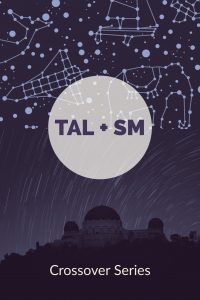Matt’s recent post about the survival of disciplines like anthropology in the post neo liberal future was, like all the best sci- fi stories, simultaneously fun and scary with distinct elements of , if not truth exactly, possibility. We recognise the narrative and see ourselves in it because of how we are experiencing these kinds of changes in our respective locations. These are not merely geographic, although place becomes increasingly important, but encompass our situation within the global political economy of knowledge production and reception, and the global education market place.
The extent to which the scorched earth scenarios will actually unfold is uncertain. The mass expansion in higher education globally over the past decade, not just in the global north, is after all a combined product of private and public spending. What the sector is experiencing is, as Matt shows, increasing differentiation.
The niche occupied by anthropology is changing. Some of this is cataclysmic, as departments shrink and others are faced with closure. But anthropology and ethnography are struggling to find new territories outside the academy and at different sites within it. This is of course leading to debates about what `real’ anthropology is – that is the extent to which anthropological knowledge should stay as inaction research constituted from a position of criticism.
Such refrains may be muffled in the longer term by the roar of rising water over the sinking ship. One established version of what we think of as social anthropology evolved in the nineteen thirties and forties and was distributed widely through the expansion of academic posts and departments in the nineteen sixties and seventies.
The objects of study have changed radically since then, of course, but the ways in which the knowledge categorised as anthropological is organised and obtained hardly at all. At the same time, cognate disciplines, human geography for example, claim to use ethnography as one among many methodological possibilities while also being open to more explicit modalities for the co-production of disciplinary knowledge, not only with colleagues within the discipline but actively with informants.
Something is lost as well as gained through such endeavours. The paradigmatic ethnographic research experience of working through interpretive frames of emergent understanding is not only unique to a particular way of doing anthropology. It yields unique insights. It is also ethically problematic. Debating its limitations as well as potentialities is urgent, as is the rethinking of new approaches to ethnographic practice and to anthropology. If, as we reiterate endlessly to our readers and students, culture and social practice are constituted relationally, we should pay more heed to how the relations within which we are embedded are changing and to our possible role in effecting their transformation. As, Matt suggests, resistance is a strategy but it is not the only one. In the game like scenario he outlines, some communities carve out new spaces for themselves and adopt new weapons and strategies for survival.
Whether the game of academic survival is more analogous to Pokémon, with its public private partnerships providing health resources to the battling creatures under the supervision of titled professors, or to the blood and thunder of World of Warcraft, probably depends where one is situated. In the UK, teetering on the brink of economic crisis amid huge cuts in public spending and a government imposed value for money agenda through which all spending is assessed, the pressing issue is not simply the marketization of higher education, but what level of public investment can be justified. In this climate, it is not surprising that disciplines like ours feel extremely vulnerable.
At Manchester, we are exploring ways of addressing the changed situation by actively engaging it. Instead of simply bemoaning neo-liberalisation, although we do that too, we perceived it as an opportunity. If neo-liberalisation has changed our universities and the kinds of students we attract, what could this mean for our discipline? How could we generate demand and attract different kinds of students to our courses? One experimental answer was to offer a different kind of course aimed at a different kind of student.
Our first year course in business anthropology is designed to be accessible and relevant for undergraduate students taking degrees in business and finance disciplines. It attracted several hundred students in its first year of delivery, students who would not normally have selected an anthropology option. Trying to think in market terms enabled us to situate ourselves differently but it also placed us in a relation of competition with other departments from whom potential students were drawn. Responding to markets may in practice mean shifting the burden of vulnerability. We as a formerly protected species are being forced out of the reserve. Is there an alternative to this world of Prey into Hunter? What other options might we have as anthropologists working in and outside the academy to restructure this particular conjuncture?
 This Anthro Life – Savage Minds Crossover Series, part 4
This Anthro Life – Savage Minds Crossover Series, part 4